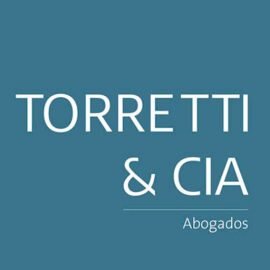Best Inheritance Law Lawyers in Chile
Share your needs with us, get contacted by law firms.
Free. Takes 2 min.
Or refine your search by selecting a city:
List of the best lawyers in Chile
1. About Inheritance Law in Chile
Inheritance Law in Chile is primarily governed by the Civil Code, which sets out how a deceased person’s assets are distributed among heirs. The code distinguishes between testamentary and intestate succession, and it protects the legitimate rights of forced heirs through the concept of legítima. In practice, a succession often requires a judicial declaration of heirs and a partition of assets, including real estate and business interests. debts of the deceased pass to the estate and must be settled before distribution.
Wills, or testaments, in Chile can be public, abierto, or privado, with specific formal requirements. The process can involve guardianship for minor heirs, claims by creditors, and potential disputes over asset valuation. A lawyer who specializes in inheritance matters helps navigate document preparation, filings, and possible court disputes.
Chile uses a civil law framework for succession, with the Civil Code guiding who inherits and in what share, subject to legitimate portions for certain heirs.
For residents, understanding the basics early can prevent delays and reduce costs if a relative passes away. This guide highlights practical considerations, common pitfalls, and steps to engage legal counsel effectively.
Official resources from Chilean authorities explain how succession and wills operate within the country’s legal system.
Sources and further reading from official sources include the Poder Judicial and the Biblioteca del Congreso Nacional for texts and guidance on succession law. See the cited sources in the next section for authoritative details.
2. Why You May Need a Lawyer
Below are concrete, Chile-specific scenarios where hiring a solicitor for inheritance matters is advisable. Each example reflects real-world situations you may encounter in Chilean courts or with public registries.
- Disputes over the legítima after a parent dies: A child believes the will favors other heirs improperly and seeks a share protected by legítima. A lawyer helps assess rights, gather proof, and represent claims in court or in negotiations with other heirs.
- Challenging or validating a will: A cousin contests a will claiming fraud or lack of proper formalities. A legal counsel guides compliance with formalities for públicas, cerrados or ológrafos tests, and represents you in court.
- Intestate succession when there is no valid will: Spouses, children, or other relatives may have rights to the estate by law. An attorney helps identify heirs, value assets, and coordinate a court-approved partition.
- Partition and distribution of assets among multiple heirs: Real estate, shares in a family business, and bank accounts require valuation and division. A lawyer drafts a partition agreement and, if needed, files it with the court.
- Handling debts and estate administration: The deceased's debts must be settled before distributing assets. A solicitor helps prioritize creditor claims and ensure proper settlement with the estate.
- Cross-border or international assets in a Chilean succession: If there are properties or investments abroad, a lawyer coordinates with foreign authorities and applies Chilean rules on international succession as appropriate.
3. Local Laws Overview
The following laws and regulations form the backbone of Inheritance Law in Chile. They interact to determine heirs, the legitimacy of shares, and the procedural steps to settle an estate.
Código Civil de Chile
The Civil Code is the primary statute governing succession, testaments, and the legitimate shares of heirs. It has shaped Chilean inheritance practices since the 19th century and remains in effect with ongoing reforms. The code covers who inherits, how shares are calculated, and how a will can modify the default distribution.
Key rules in the Civil Code include the right of forced heirs and the calculation of legítima, which can constrain freely disposed portions of an estate.
Código de Procedimiento Civil
The Civil Procedure Code governs the court process for declaring heirs, validating wills, and ordering partitions. It sets timelines, filing requirements, and the procedures for contesting inheritance matters in court. This code is important when a deceased person has complex assets or contested heirs.
Procedural steps for succession and partition are typically executed in courts with jurisdiction over the deceased's domicile or principal assets.
Registro Civil e Identificación
The Registro Civil e Identificación plays a key role in certifying acts related to family status, marriages, and legitimate heirs. It often interacts with probate when registering changes in ownership or the formal recognition of heirs.
Registration of death, wills, and heirs can be required to effect transfers of title and to formalize the succession process.
Recent trends in Chilean inheritance practice include modernization of court processes and greater use of electronic filings. These changes aim to speed up the disposition of estates and improve transparency for heirs. For authoritative context on succession processes and ongoing reforms, consult official sources listed below.
4. Frequently Asked Questions
The following questions cover practical, procedural, and definitional topics about Inheritance Law in Chile. Each item starts with a common question word and stays within a 50 to 150 character limit.
What is legítima in Chile?
Legítima is the legally protected portion of an estate reserved for certain heirs. It limits how the deceased can distribute assets freely through a will.
How do I start a succession process in Chile?
File a declaration of heirs and a probate petition at the appropriate court. Include death certificate, will if any, asset list, and identification documents.
When is a will required to be probated?
A will generally must be probated when it transfers ownership of property or when a court confirms the deceased's wishes for asset distribution.
Where do I file a declaration of succession?
The declaration is filed in the civil court with jurisdiction over the decedent's assets or domicile. The process may involve the local court's registry.
Why do I need a lawyer for inheritance matters?
A lawyer helps ensure proper heirs are identified, assets are valued correctly, and the partition complies with the law and court rules.
Can I challenge a will in Chile?
Yes, a will can be challenged for fraud, undue influence, or failure to meet formal requirements. A lawyer can guide you through the grounds and process.
Should I hire a Chilean attorney or a notary for a testament?
For typical probate and disputes, a lawyer is advised. Notaries handle certain formalities, but complex cases require counsel with court experience.
Do I need to pay inheritance tax in Chile?
Chile has tax rules on inheritances and donations. Consult the Servicio de Impuestos Internos for current applicability and rates.
How long does a succession take in Chile?
Simple cases may take several months, while complex partitions can span 12 to 24 months or more. Timelines depend on asset complexity and disputes.
What documents are needed to start a succession?
You typically need death certificates, identification, proof of ownership, asset valuations, and a will if one exists.
Is a power of attorney useful in an inheritance matter?
Yes, a power of attorney can allow a lawyer to act on your behalf for filings, negotiations, and court appearances.
What is the difference between testamento publico and testamento ológrafo?
A public will is formal and witnessed by a notary, while an olographic will is handwritten and signed by the testator without witnesses.
5. Additional Resources
Use these official resources for authoritative guidance on inheritance law, procedures, and related obligations in Chile.
- Poder Judicial de Chile - Provides court forms, procedural rules, and guidance on succession matters and partitions. https://www.pjud.cl
- Biblioteca del Congreso Nacional (BCN) - Leyes y Textos Vigentes - Offers official texts of the Civil Code and related inheritance laws. https://www.bcn.cl/leyes
- Ministerio de Justicia y Derechos Humanos - Oversees legal norms and public guidance on civil matters, including wills and succession administration. https://www.minjus.gob.cl
- Servicio de Impuestos Internos (SII) - Information on taxes that may apply to inheritances and donations. https://www.sii.cl
6. Next Steps
- Define your objective and gather documents - List potential heirs, assets, debts, and a will if one exists. Aim to complete this within 1-2 weeks.
- Identify a Chilean inheritance law solicitor - Look for a lawyer with a focused practice in succession and testaments. Schedule initial consultations within 2-3 weeks.
- Prepare for the consultation - Compile death certificate, asset list, title deeds, tax documents, and any previous wills. Bring questions about fechas and costs.
- Obtain a formal assessment of the estate - Have your attorney request asset valuations and identify creditors. Expect 2-6 weeks for initial reports.
- Decide on a course of action - Choose between agreement among heirs or court-driven partition. Set a timeline with your solicitor.
- Prepare and file required petitions or responses - Your attorney will draft and submit documentation to the court or registry. Anticipate 1-3 months for initial court actions.
- Monitor progress and adjust as needed - Review notices, court orders, and beneficiary distributions with your attorney. Plan for regular check-ins every 4-8 weeks.
Lawzana helps you find the best lawyers and law firms in Chile through a curated and pre-screened list of qualified legal professionals. Our platform offers rankings and detailed profiles of attorneys and law firms, allowing you to compare based on practice areas, including Inheritance Law, experience, and client feedback.
Each profile includes a description of the firm's areas of practice, client reviews, team members and partners, year of establishment, spoken languages, office locations, contact information, social media presence, and any published articles or resources. Most firms on our platform speak English and are experienced in both local and international legal matters.
Get a quote from top-rated law firms in Chile — quickly, securely, and without unnecessary hassle.
Disclaimer:
The information provided on this page is for general informational purposes only and does not constitute legal advice. While we strive to ensure the accuracy and relevance of the content, legal information may change over time, and interpretations of the law can vary. You should always consult with a qualified legal professional for advice specific to your situation.
We disclaim all liability for actions taken or not taken based on the content of this page. If you believe any information is incorrect or outdated, please contact us, and we will review and update it where appropriate.
Browse inheritance law law firms by city in Chile
Refine your search by selecting a city.














